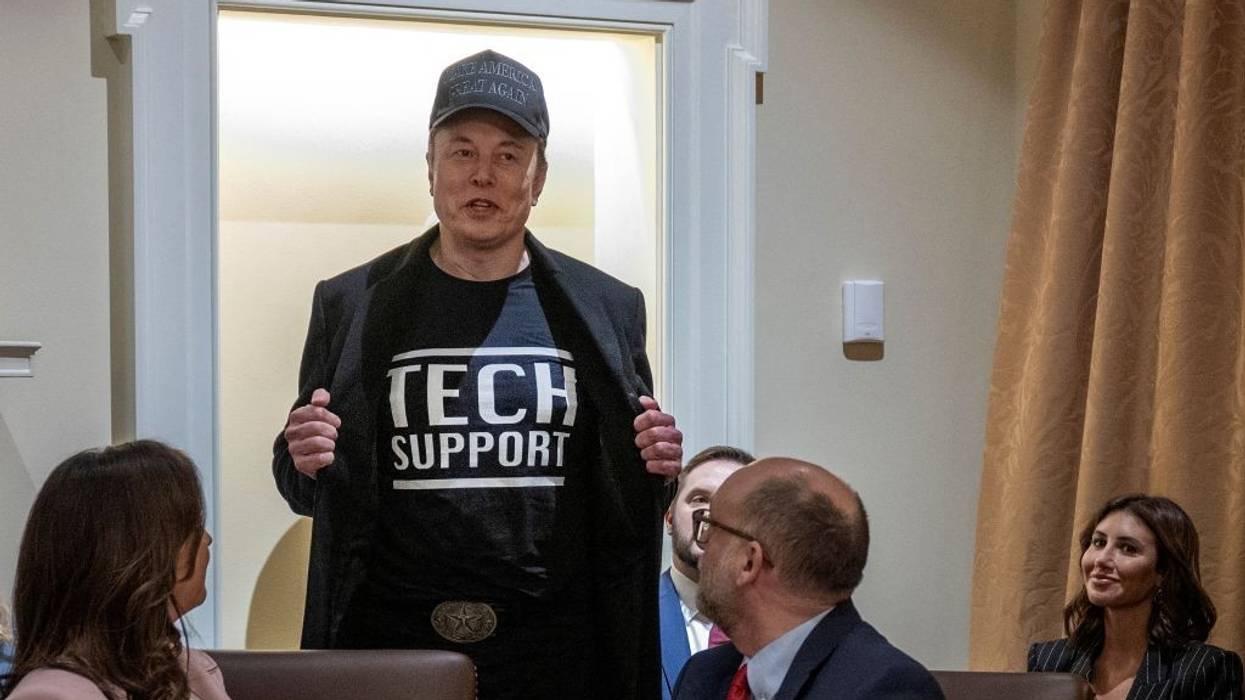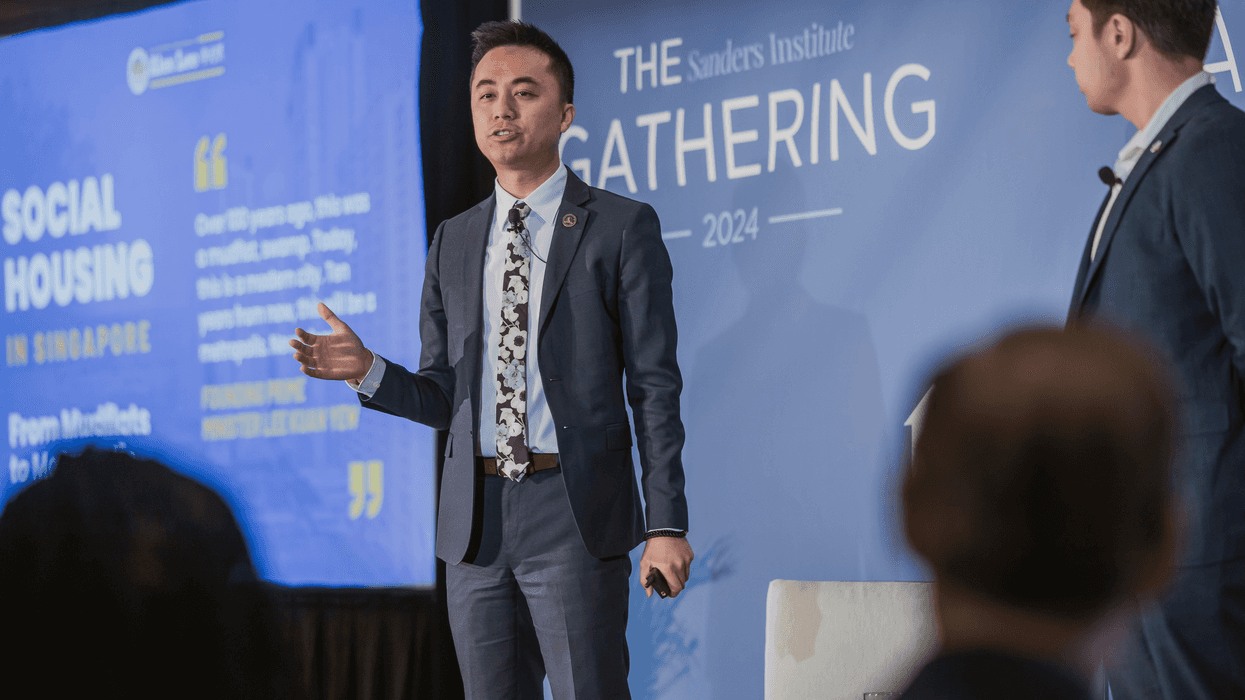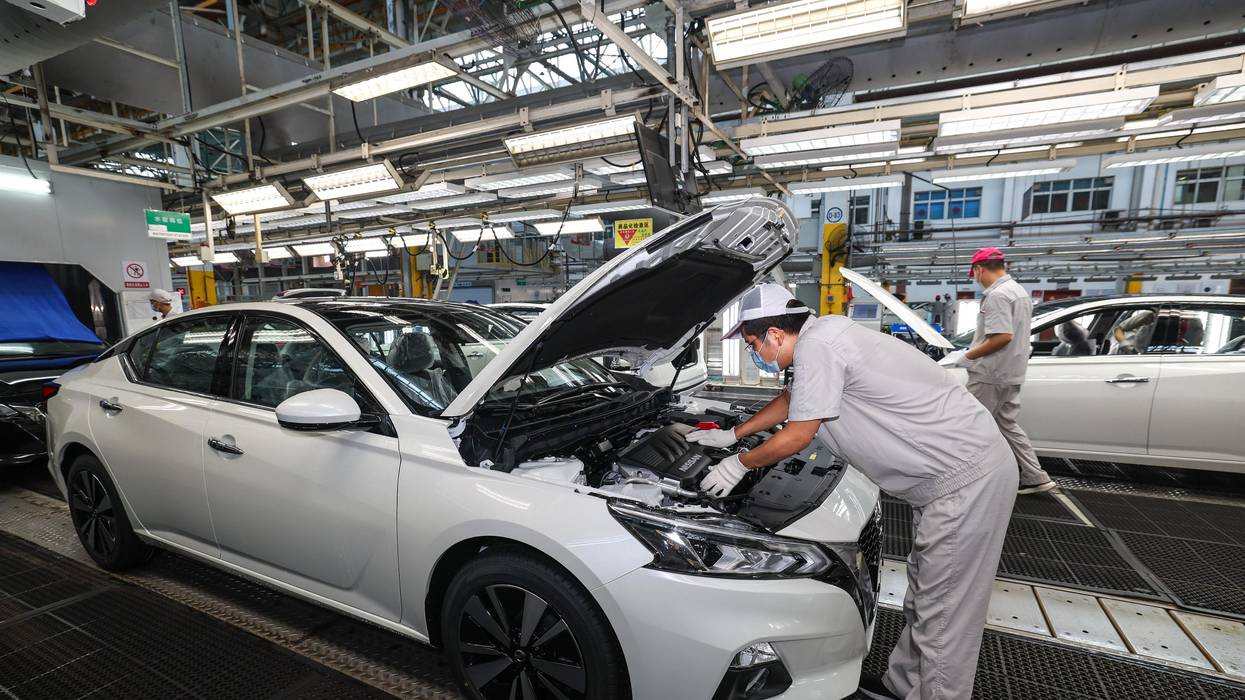President Donald Trump and Elon Musk aren’t just tearing down institutions—they’re laying the groundwork for an experimental new kind of authoritarian rule.
The audacious experiment Musk has embarked on—which Trump probably doesn’t even understand—involves the fundamental transformation of America from a nation ruled by its own people into one where decisions are made by a very specific elite group of self-selected “genius” white male technocrats.
Americans are baffled by the brutal, relentless attack on the institutions of America that they’ve launched.
Why would they destroy our reputation around the world by shutting down USAID? What’s wrong with the federal government helping poor school districts or giving college students Pell Grants? Why gut billions in scientific research that’s kept America at the forefront of the world and saved literally hundreds of millions of lives?
Paul Krugman recommends a psychiatrist weigh in; Dr. Bandy X. Lee (a frequent guest on my program) points that out, noting, “How exactly this plays out is, as I have said, a spiritual question.” Three New York Times writers even had a lengthy back-and-forth on the topic, under the title: “Is Destruction the Point?”
- Some speculate that Musk and Trump are both tight with Putin and they’re destroying our government at his direction, helping achieve the goal he’s had since his KGB days to destroy America from within.
- Others think it’s just a way of crippling government programs like Social Security, Medicaid, and the Post Office so they can now be profitably taken over by private industry.
- Democratic politicians tell us Musk and Trump are just trying to cut government spending to pay for the $4 trillion in tax cuts for billionaires that House Speaker Mike Johnson (R-La.) will be introducing in the House in the next few weeks.
They’re all wrong.
The simple answer is that these people intend to replace the 240+ year “American Experiment” with a brand new governance “experiment” of their own. One that was largely developed in computer rooms around San Francisco.
There’s an actual ideology behind all this, and it isn’t the old-fashioned Ayn Rand libertarianism that was such a rage during the Reagan era.
This hot new experimental ideology, enthusiastically embraced by Silicon Valley billionaires and their “tech bros” dismantling our government, is called the Dark Enlightenment or the neo-reactionary movement (NRx).
And it’s not entirely new; they believe they have proof that it works, which can be found way over on the other side of the planet. I’ve been there, in fact, and it does seem to be working just fine… if you don’t care about freedom.
Back in 1994 I published a book proposing that ADHD wasn’t a brain disease or disorder but, instead, a form of brain wiring that would be highly adaptive during humanity’s long hunter-gatherer period but can present a struggle for people in today’s factory-like school systems. Time Magazine did a cover story about it, including an article featuring my book, and suddenly I was in demand literally around the world.
One of the countries I visited during the book tour that ensued (the book’s available in more than a dozen languages) was Singapore. A parents’ group had reached out to my publisher and set up an opportunity for me to talk about my theory and ways schools could be reinvented to work for both “normal” and ADHD kids.
I gave the speech and laid out a series of suggestions, and during the Q&A that followed, one of the parents asked how to best convince schools to adopt some of my ideas. I suggested they should “become politically active,” a standard answer in most every other country I’d visited (and here in America). Little did I realize the significance of that phrase.
When I got back to my hotel, an internationally famous five-star tower with a beautiful atrium, my room had been torn apart. The mattress and box springs were on the floor, as were the contents of my suitcase. Every drawer was pulled open. My toiletries kit was all over the bathroom floor.
I called hotel security to report what I thought was a break-in or robbery, although I couldn’t immediately see that anything was missing. The head of security showed up in my room five minutes later with the hotel manager. They looked around the room with neither shock nor alarm.
The manager explained, with a hint (but only a hint) of apology in his voice, “The police were here,” as if that explained everything
“They did this?” I asked, as I recall.
He nodded and said, “Presumably.”
“Why?” I demanded.
Both men shrugged. The head of security asked me if I’d engaged in anything illegal while in Singapore, particularly bringing illegal drugs into the country, and I indignantly denied even the possibility. They shrugged their shoulders again and offered to send a maid up to help make put the room back together.
The next morning, I had breakfast with some of the parents I’d met the afternoon before and told them what happened. They explained, in a whisper, that I never should have mentioned “politics” in my speech.
“It is not allowed here,” as I recall one telling me.
Singapore has come a ways from the mid-1990s, but is still an authoritarian state. As Robin Kaiser-Schatzlein wrote for Mother Jones:
During his reign, [Lee Kuan Yew, aka LKY, Singapore’s former leader] successfully fused pro-corporate libertarian economics and state socialism, creating a distinctly conservative mishmash of social and political control.
Singapore has banned all kinds of free speech; intervened in marriages and family planning; encouraged eugenics; caned people for minor crimes; created an ethnically homogeneous ruling class; treated the migrant worker population as second-class citizens; and, famously, banned chewing gum.
This is LKY’s model: economic development above all else—even human rights. A “soft” authoritarianism, as Fareed Zakaria has called it. “The exuberance of democracy,” LKY explained, “leads to indiscipline and disorderly conduct, which are inimical to development.”
According to the philosopher-king of the Dark Enlightenment movement, the guy who woke up JD Vance, and the billionaires who support him, Singapore is their explicit model for America’s future.
As Kaiser-Schatzlein writes about Curtis Yarvin and the other Dark Enlightenment thinkers who have inspired Musk, Theil, Vance, et al.:
For a new breed of right-wing thinkers, politicians, and activists, LKY’s approach to government is appealing. Curtis Yarvin, Silicon Valley’s resident neo-monarchist, compares LKY to FDR—both good examples, he says, of a unilateral leader.
And Nick Land, an accelerationist philosopher, calls LKY an “autocratic enabler of freedom.”
To them, LKY is the paradigm of an illiberal ruler who created a paradise for his subjects: a freedom without rights, a prosperity without disorder.
Sure, Republicans are going to gut government spending to pay for tax cuts for the billionaires who own them. And they definitely want big Wall Street banks to run Social Security just like George W. Bush handed more than half of Medicare (so far) over to giant for-profit insurance companies. After all, both industries represent such big campaign donors.
But this goes way beyond merely making billionaires richer or giving corporations more power over our lives. The audacious experiment Musk has embarked on—which Trump probably doesn’t even understand—involves the fundamental transformation of America from a nation ruled by its own people into one where decisions are made by a very specific elite group of self-selected “genius” white male technocrats.
And once AI reaches the ability to think with the intelligence of a genius-level human—Artificial General Intelligence or AGI—some of these guys believe that most of the decision-makers and agencies of the federal government can simply be replaced by banks of computers, deciding who gets what, when, and why.
All it’ll take is a monarchical leader who, like KLY, brooks no dissent.
Trump could be that leader—or at least the useful-idiot-frontman for the technocrats like Vance and Musk who are really running things—and the gutting of federal agencies opens up a space to replace them (and their workers) with AGI-based computer systems.
Rana Foorahar explains it in The Financial Times:
The philosophy argues that democracy inherently leads to social decline, because of the development of deep state bureaucracies that are unable to control oligarchic forces, and that societies should be run like corporations, with a kind of CEO Monarch in charge.
As Yarvin has said, “If Americans want to change their government, they need to get rid of dictator phobia... One way of dealing with that is... hire two executives and make sure they work together and there is really no other solution...”
And they’re much further along in the process of both gutting government and seizing total control of our political system to implement this experiment than most Americans realize.
- A new site that lays out exactly how they’re progressing toward their goal of kneecapping the federal bureaucracy is project2025.observer; according to the site, they’re about 40% of the way there, although the courts may set them back temporarily.
- And the project for billionaires to take complete control of our elected officials (and thus our government, at all levels) is also nearly complete: Fully 18% of all spending on the 2024 elections was done by just 150 billionaire families who represent a mere .00000045% of the American population.
The Dark Enlightenment has little use for democracy; openly disdains notions of equality as proposed in the Declaration of Independence and our Constitution (viewing them as unnatural and counterproductive); and rejects what they call “Whig historiography,” which assumes history inevitably progresses toward greater liberty and enlightenment.
Instead, like Julius Evola, Thomas Carlyle, and Oswald Spengler, they argue that “classical” societal structures that ruled the world for millennia (like feudalism, monarchy, or cameralism) are superior to democracy and, completely ignoring the history of the development of modern democracy, should—with a high-tech AGI twist—replace today’s democratic “experiment.”
(Ironically, a large portion of the infrastructure that this movement is using was financed by fossil fuel billionaires who simply wanted to avoid paying income taxes and to have their oil companies deregulated so they could make morepollution and thus more profit. Similar to the people who funded the rise of Hitler—including Fritz Thyssen who wrote the book I Paid Hitler after WWII as an apology—many are now surprised, and some even frightened, by the turn of things.)
They are pushing forward with the “move fast and break things” slogan of the Tech industry that Mark Zuckerberg popularized. And they are having breathtaking success, between that strategy and the billions of dollars they are easily able to spend to seize the political power to fulfill their vision. They call themselves “Masters of the Universe” without a trace of irony.
Some high-profile observers of American politics are alert to this takeover-in-progress that most of our media has completely missed. Former Labor Secretary Robert Reich, for example, recently wrote for his Substack newsletter:
Behind Vance and Musk is a libertarian community of rich crypto bros, tech executives, back-to-the-landers, and disaffected far-right intellectuals.
Curtis Yarvin comes as close as anyone as being their intellectual godfather. He has written that political power in the United States is held by a liberal amalgam of universities and the mainstream media whose commitment to equality and justice is eroding America’s social order.
In Yarvin’s view, democratic governments are inefficient and wasteful. They should be replaced with sovereign joint-stock corporations whose major “shareholders” select an executive with total power, who serves at their pleasure.
Yarvin refers to the city-state of Singapore as an example of a successful authoritarian regime.
He notes that these tech-bro “oligarchs of the techno-state” want to replace “inefficient” democracy with “an authoritarian regime replete with technologies they control.”
Rachel Maddow has similarly featured stories about Yarvin and others like him on her program, albeit infrequently. The New Yorker has written about the movement, as have multiple other publications.
Lefty intellectuals and progressive thought leaders are suddenly waking up to the Dark Enlightenment experiment that, like a glacier finally reaching the sea, has been slowly consuming the GOP as it moves along and is now—with hundreds of millions from Elon Musk buying the White House for Trump—suddenly cleaving off massive icebergs of damaged governmental institutions.
But a much wider understanding of what’s really animating Trump’s and Musk’s experimental destruction of our government is needed.
If Americans don’t wake up to the Dark Enlightenment’s creeping grip on the people who control our democracy, we may soon find ourselves living in a country where elections are meaningless, the government serves only the ultra-rich, and freedom exists in name only.
Pass it along… and get into the streets!




